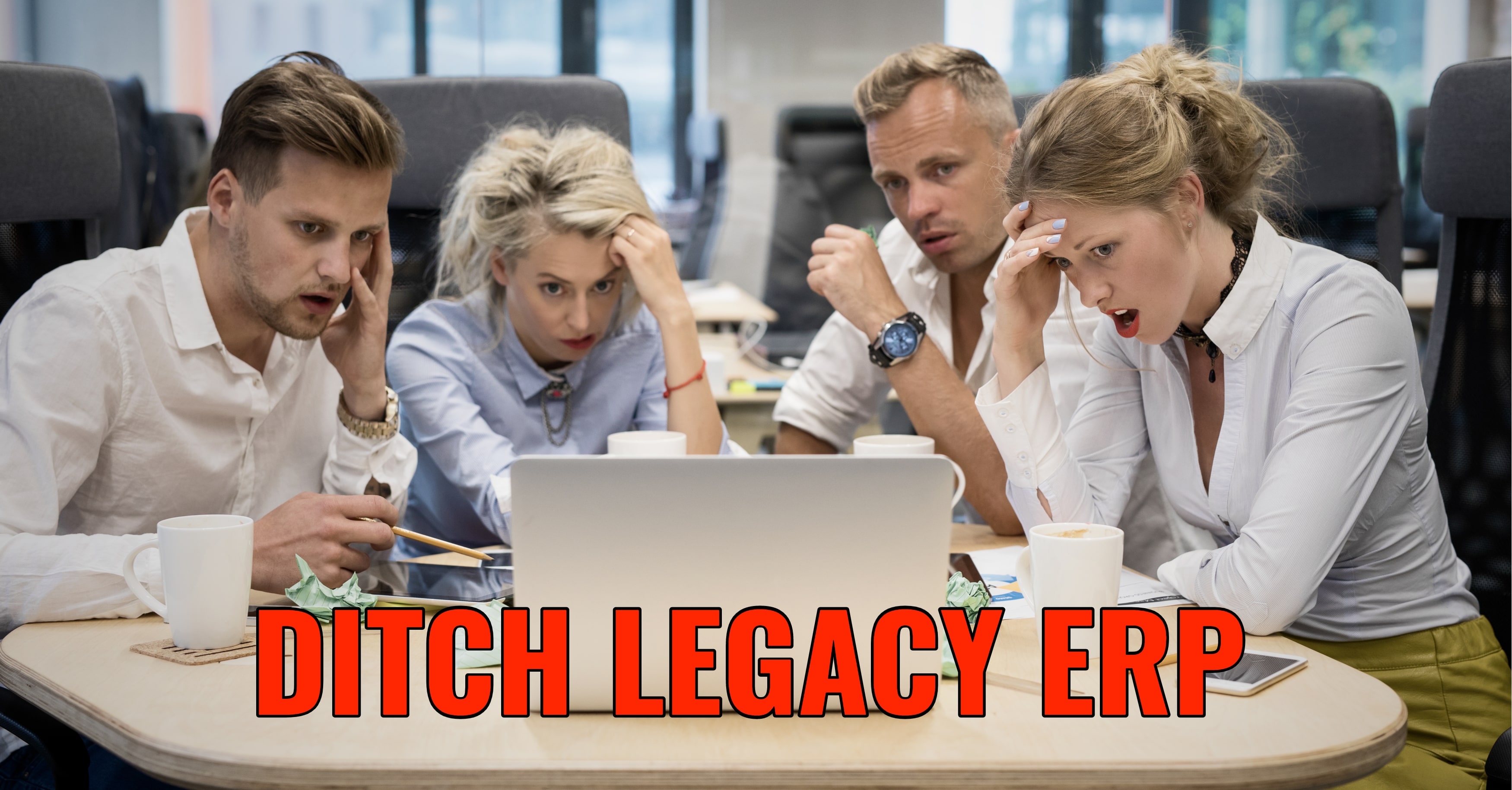
Upgrade Your Legacy ERP Software
Reluctance to upgrade or move on from your first ERP system is understandable. After all, if you’ve already gone through one implementation, why would you do it again? Many companies rationalize the use of their legacy software, excusing shortcomings and extended processing times because the system can still carry out basic ERP functions or employees are used to it.
It’s time to stop making excuses. By sticking with your old ERP software, you expose your operations to serious risks. You also end up wasting money on troubleshooting a system that will soon become obsolete. Additionally, as technology has modernized, the level of data visibility and insight has grown exponentially. Legacy ERP software is getting left further behind in the dust. Here are just a few of the negative outcomes of clinging to your legacy software.
Unnecessary Delays
As enterprise software consultants, we’ve come across several companies that have accepted ludicrous wait times to process data—hours just for one bill of materials to process, for example. The excuse we usually hear for that kind of problem is, “Well, that’s the way it’s always been done, and we just deal with it.” Accepting that kind of thinking runs counter to everything ERP software is. The whole point of an ERP solution is to improve productivity and streamline operations on the shop floor. You shouldn’t accept delays as a natural side effect of manufacturing technology.
In the case of one of our clients, we reduced those hours of processing wait time to just a few minutes with the help of an Epicor ERP implementation. Imagine how much more powerfully you can run your business when you’re not sitting around waiting for your legacy ERP to catch up! Shouldn’t the promise of such a drastic reduction in operational time be enough to get you over any reluctance about updating your ERP?
Integration Issues
In the modern business world, integration of your enterprise systems is non-negotiable. The idea of the totally interconnected enterprise wasn’t in mind when you implemented your legacy software. Integrating CRM and ERP, for example, was not always seen as a necessity, and businesses often customized their existing ERP suites to carry out functions that newer enterprise platforms can now perform out of the box. A traditionally customized and aging ERP system will contain a lot of disparate functions with very little communication between each arm.
Extensive customization will eventually obstruct one of the main functions of your software: data reporting. Without total enterprise software transparency and seamless integration of your departments, you cannot collect all the critical information your business needs. Newer ERP systems have been built with the value of inter-connectivity in mind—they foster an environment of valuable collaboration, not obstruction, within your business.
Security Risks
Slow, obstructive legacy software could also cause significant security problems down the line. As your enterprise system gets older, it will slow down and lose support from the original system vendor. That lost support means your vendor isn’t investing in developing bug patches or improving security on your legacy platform. Unpatched ERP software is more at risk for attacks and automated scanning bots that could put your sensitive company data in the wrong hands. That’s not to mention the fact that a total crash of your ERP could be unsupported by the vendor, leaving your IT team to figure it out all on their own. The only way to take these significant security risks out of the equation is to upgrade your legacy software or to move to a new ERP platform entirely.
Angry, Disappearing Customers
The first ERP systems were focused solely on the shop floor. They weren’t built to support the pipeline from the shop floor to the customer’s door. We mentioned earlier that one of legacy ERP software’s most common side effects is poor data visibility. That lack of software communication will inevitably translate into lower standards of customer service.
For example, without inventory data, you can’t plan for upcoming demand, and your sales team can’t accurately communicate with clients about expected delivery dates and manufacturing times. What’s more, some of the security risks we covered above could lead to critical events that cripple your entire ERP system. Any work stoppage on your shop floor, whether it lasts hours or days, will result in late orders, mistakes and lost customers.
Wrap Up
Moving on from legacy enterprise software won’t just speed up your day-to-day processes. New ERP software such as Epicor 10 can totally revolutionize the way you do business—and keep your data safe.
Datix can help you upgrade to a modern ERP system that has been planned and implemented around strategic business objectives. We’ve helped countless clients upgrade their legacy ERP, all while renovating their business processes and fostering new levels of growth. An Epicor Gold Partner, we offer end-to-end support to equip manufacturers and distributors with powerful solutions. Whether you’re on Vantage, Epicor 9 or a solution from an outside vendor, our certified consultants will seamlessly upgrade your software to Epicor 10.
Stop relying on outdated software. Get in touch with our team to learn more about upgrading your ERP solution!
{{cta(‘770c1544-d87d-4acb-9fc4-7a25e1385094′,’justifycenter’)}}

